Cost of living: What can you do if your landlord won't fix something?
- Published
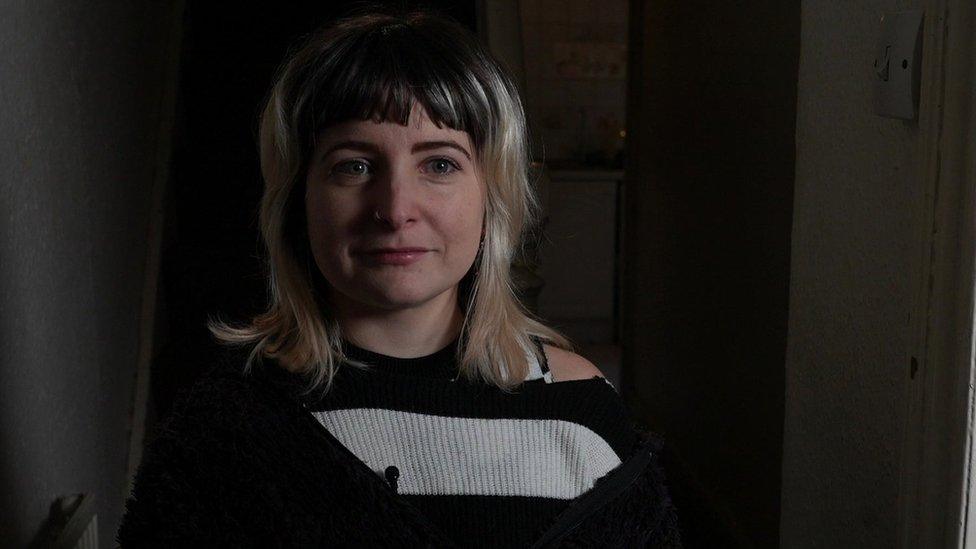
Hayley Dawson says she faced a battle to get various problems in her rented home fixed
When Hayley Dawson was told her rent would be going up by hundreds of pounds, it was unwelcome but understandable.
The market is competitive and costs are rising for everybody, she says - but where she's less forgiving is the condition of her rented home.
She says she spent months trying to get things fixed - like her shower, which she couldn't use for 11 months.
Shortly after, Hayley was handed a no-fault eviction notice.
The letter, also known as a Section 21, told her the landlord was ending her tenancy in November.
And Hayley was told to move out of the place she'd called home for almost six years by 26 January.
"The ongoing battle with the landlord... it was it was all building up to this point," she says.
'Terrifying conversation'
BBC Newsbeat teamed up with Newsnight to visit Hayley in Bristol.
She showed us examples of mould and damage around the rented property she's due to leave.
Speaking about the rent increase by her landlord, she says it was "a tough month".
"And the house was deteriorating in quality quite rapidly as we were going into winter."
Hayley says that when she looked into her rights, she found that tenants "have no power" and "conditions have to be extremely bad before you can get any help from the council".
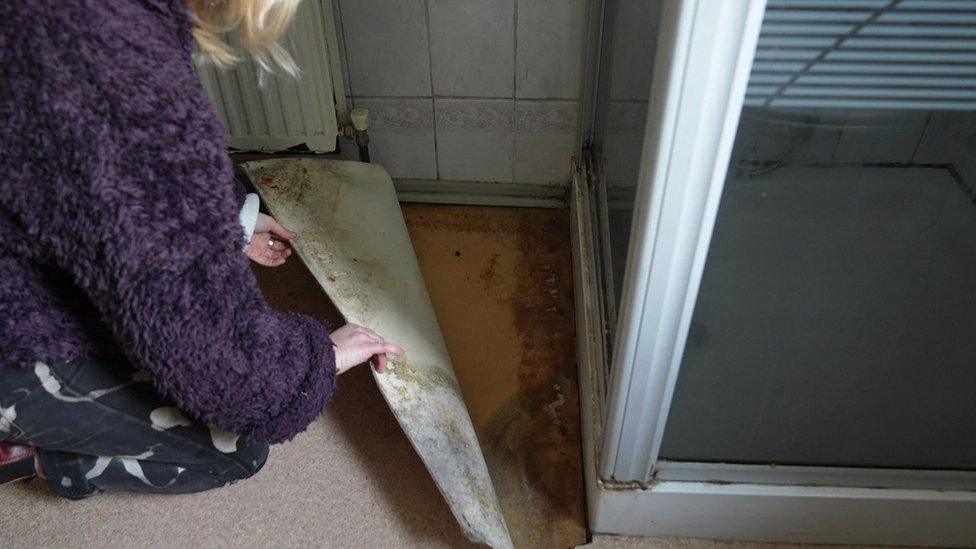
Hayley said mould was a recurring problem around her home
So, despite having a contract with the landlord, Hayley felt "he just wasn't upholding his end of the bargain".
She researched online but the main advice was to start a conversation with her landlord.
"And that's quite terrifying," Hayley says.
"Because as soon as you start your conversation, depending on the landlord, they could just be like: 'this person's kicking up a fuss, I'm going to kick them out'.
"'I can get any number of people who would be willing to live here for more money'."
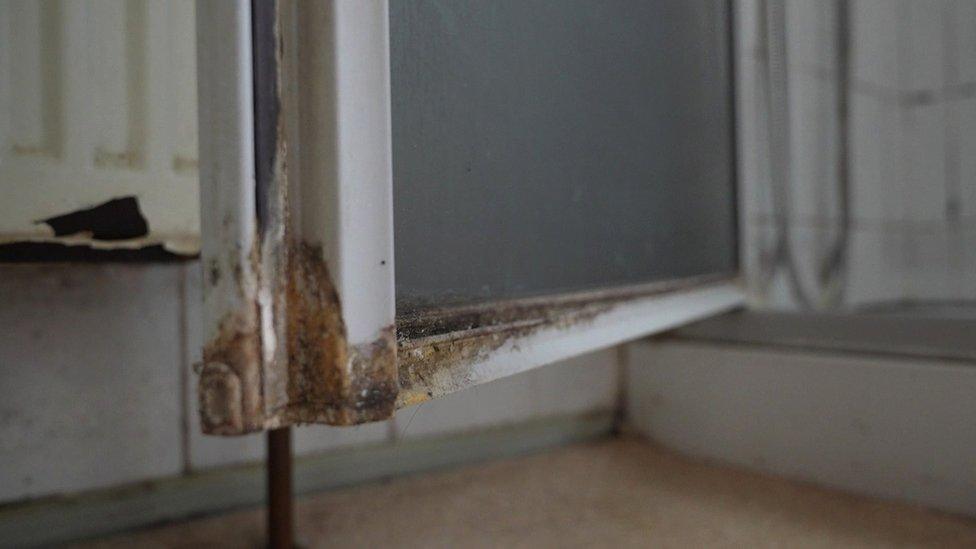
Going to court is an option but one that could cost a lot - and Hayley says she didn't want to take the risk because she feels the system is tipped in the landlord's favour.
Last year the English Housing Survey said nearly a quarter of private rented housing was below standard.
This means it can't be heated or insulated, is in disrepair or could pose a risk to health.
Greater regulation?
Richard Blakeway is the Housing Ombudsman for England - which means the government put him in charge of helping to regulate social housing.
He told us that about 90 private landlords had joined a scheme that would allow him to settle disputes between them and their tenants.
But he says that's a "drop in the ocean", as he thinks there are about two million landlords in the country.
"I think that shows the real gap that exists on accessing free, impartial, independent dispute resolution through an ombudsman for for private renters compared to social renters."
Richard says the government should introduce laws that force landlords to join the scheme, otherwise little will change.
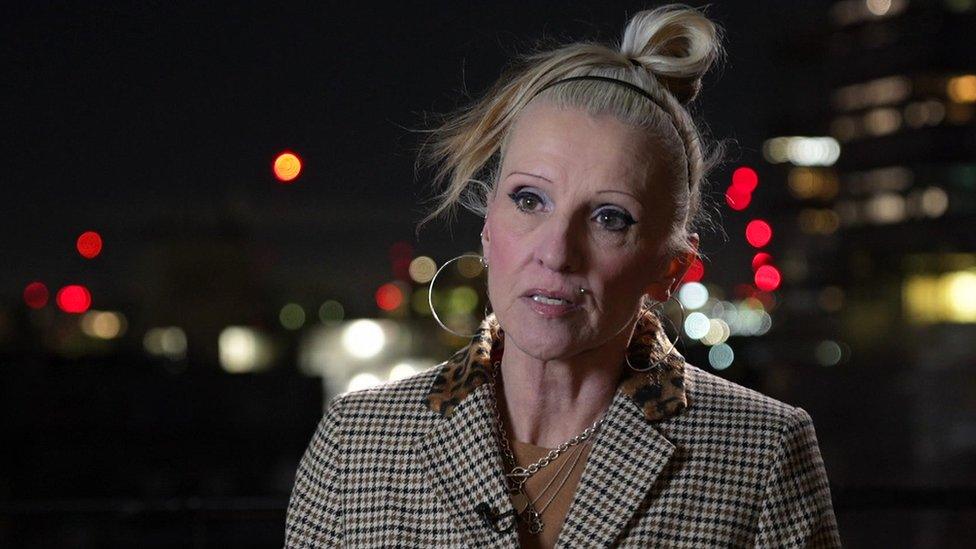
Private landlord Vanessa says good landlords follow the rules
For private landlord Vanessa Warwick, "ethical and compliant landlords are all for raising standards".
But she says there are existing powers for local authorities to use, which they do not utilise enough.
"If existing powers are not being used, then is it really worthwhile introducing even more?," the founder of landlord forum Property Tribe tells Newsbeat.
Vanessa feels the housing ombudsman scheme is a good idea for resolving disputes involving damp or mould in properties.
"An independent assessor could go out and look at that property and see what is causing the problem."
"Very often you'll find that the tenant is saying that it's the property that's causing mould and then the landlord will say 'you're not ventilating it properly'."
"It would be good to have an independent party who could go and assess a property and actually see what the problem is and have the power to enforce for that problem to be rectified."
The government has told Newsbeat it is "absolutely committed to delivering a fairer deal for renters".
"Work is under way to create a new private rented Ombudsman so all tenants, regardless of whether they rent socially or privately, have access to redress where they have a complaint about their home."

What are my rights?
Your first step should always be to report the problem to your landlord. They have responsibilities to make sure your home is fit to live in while you're there, which might include dealing with damp if it makes your home unliveable.
Find out if your landlord is responsible, for example, if mould or damp is caused by maintenance or structural problem. If they are, and you've reported the problems to your landlord and they haven't done anything about it, contact your local council.
The Environmental Health department might be able to force your landlord to deal with the problem.
If no action is taken, it's possible to take your landlord to court. But as this can be expensive and time consuming, it should be a last resort.
For more, visit Citizens Advice, external.

For Hayley, it's a bittersweet feeling right now.
"It's all just been so terrifying and very up in the air. But at the same time, the sweet relief of knowing that he's not going to be my landlord anymore."
"And this relationship that you're forced into with a landlord in this contract, I was glad could we could finally finish it.
"I could get closure and be done," she adds.


Follow Newsbeat on Twitter, external and YouTube, external.
Listen to Newsbeat live at 12:45 and 17:45 weekdays - or listen back here.
- Published21 October 2022

- Published21 October 2022

- Published10 November 2022

- Published13 January 2023
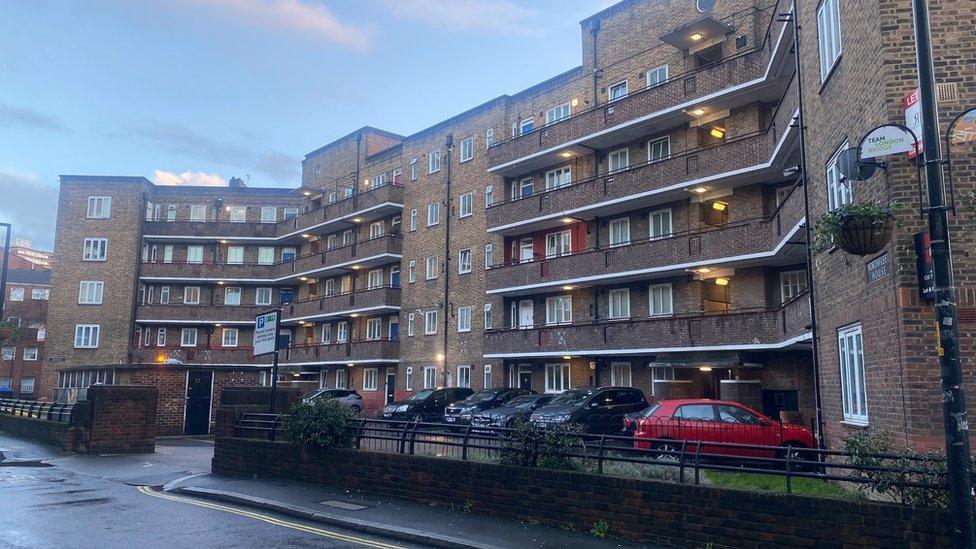
- Published14 January 2023
